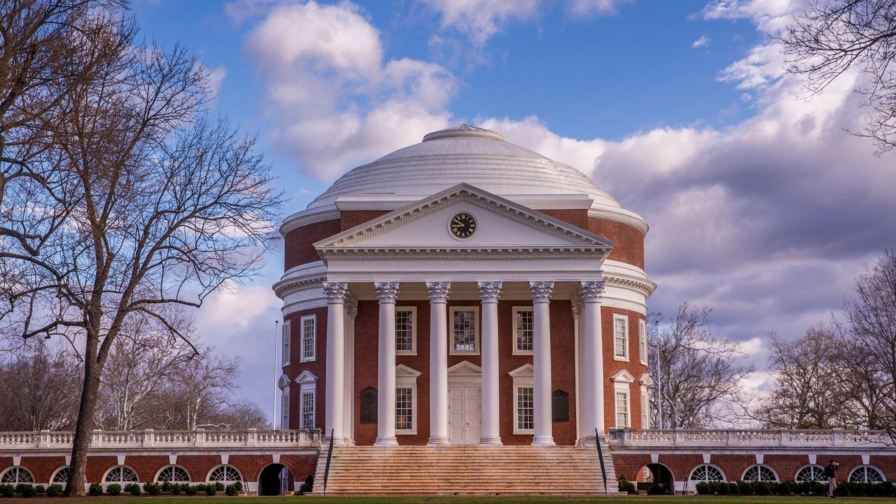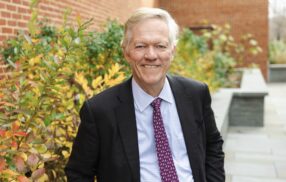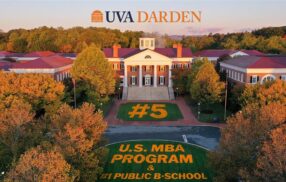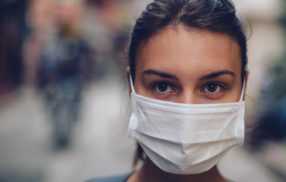
Coronavirus Is Spreading Across the US. Here’s How UVA Is Preparing
By Caroline Newman
The COVID-19 coronavirus has continued to spread around the world and is increasingly affecting communities in the United States.
Though there are currently no confirmed cases of COVID-19 coronavirus in Charlottesville or the Commonwealth of Virginia, officials across the University of Virginia are working to prepare and address risks on Grounds and in the surrounding community.
“We are mobilizing resources and expertise from every corner of the University to plan for and mitigate the impact of this coronavirus on students, faculty, staff and community members,” UVA President Jim Ryan said.
With more than 20,000 students, a major medical center, thousands of faculty and staff members and work that spans the globe, the University’s planning has to be both far-reaching and flexible, as news about the virus changes every day.
Currently, coronavirus cases have been detected in at least 71 countries, including at least 118 cases in the U.S., as of Wednesday. While initial cases in the U.S. were linked to travelers who had visited regions severely impacted by the virus, the first community-based transmissions were seen in Washington state and California last week. As of Wednesday, 11 people in the U.S. had died from the virus.
The situation changes daily, and officials across UVA are working to ensure that the University and the medical center are ready to respond. Officials will continue to communicate with students, faculty, staff and parents as needed. The University also maintains a website dedicated to coronavirus information, including archived messages and FAQs.
Below, learn more about the University’s preparations.
Planning and Leadership
The University has activated its Critical Incident Management Plan, which empowers a group of senior leaders from across the University to mobilize resources in the midst of a threat to health or safety.
The group includes Ryan, Executive Vice President and Chief Operating Officer J.J. Wagner Davis, Executive Vice President and Provost Liz Magill, Executive Vice President for Health Affairs Dr. K. Craig Kent, Vice President and Chief Student Affairs Officer Pat Lampkin, UVA Health Director of Epidemiology Dr. Costi Sifri and Executive Director of the Elson Student Health Center Dr. Christopher Holstege, as well as representatives from UVA Police, emergency management staff, human resources, communications, facilities management and others.
The group will continue to review and update plans for the University’s response as news of the virus changes. Subgroups of professionals and experts across the University will make recommendations and execute those decisions as they are made.
“This situation is evolving rapidly and there are a number of ways it could impact students, faculty, staff and community members, either in Charlottesville or elsewhere around the world,” said Magill. “UVA leadership is taking a university-wide approach to making sure the information, resources and expertise we need to keep people healthy and safe are available whenever we need them.”
UVA Health Preparations
Officials at UVA Health and UVA Student Health have put clinical screening protocols in place to identify any patients who may be at risk for the virus. If a patient meets the Centers for Disease Control criteria to be tested for the virus, UVA Health will work with the Virginia Department of Health to process that test.
UVA Health is also making preparations to receive patients confirmed to have the virus, should that be necessary.
“A team from across the medical center has worked diligently over the past several weeks on a response plan to quickly identify any patients that may have COVID-19 as well as protect the health of our patients and team members,” said Dr. Chris Ghaemmaghami, interim chief executive officer of UVA Medical Center. “Our dedicated team of experts is actively monitoring the situation, meeting regularly and updating our plans to reflect the latest developments and guidance.”
The University is also helping develop tests to fulfill growing demand for COVID-19 testing. Currently, health care providers nationwide are struggling with limited testing capabilities and waiting on expanded testing capacity from the CDC.
UVA Health has an FAQ page with more information and resources for those concerned about the coronavirus — including guidance on appropriate steps to take for those who have flu-like symptoms and are considering going to the hospital.
Travel Advisories and Contingency Planning
In response to growing concerns about international travel, the University has cancelled study abroad trips that were scheduled for spring break next week.
In an email to the UVA community, University Provost Magill also encouraged students, faculty and staff to reconsider any personal spring break travel plans to areas facing COVID-19 outbreaks.
“We feel this is the best decision to protect our students and our local community where students will return after their travel,” Magill wrote. “We are in close, regular communication with those students who are currently abroad on exchange and other programs, regarding how to monitor and assess their current situations based on conditions in the country they are visiting.”
In accordance with University policy on student travel, UVA students participating in academic programs in China and Italy this semester have been urged to leave those countries after the CDC issued a Level 3 “avoid unnecessary travel” warning for both countries. Students currently in those countries are studying with partner institutions, not with UVA-based programs.
Though there are currently no suspected cases being monitored, students, staff and faculty members returning to the U.S. from countries subject to CDC warnings are encouraged to follow the center’s self-isolation protocols as needed and contact Student Health or their health care provider if they develop a fever, cough or have difficulty breathing.
“One of the most important elements of responding to any public health crisis is the precautions that members of the community take to keep themselves and others healthy and safe,” said Holstege. “We are working hard with our colleagues in the UVA health system and our local health department to provide the information people need to avoid contracting COVID-19 and on what to do if an individual suspects that they have developed symptoms of infection.”
If students do have to self-isolate, they can contact their instructors via email or telephone to discuss appropriate class adjustments. Instructors who might have to self-isolate can modify class schedules, record lectures or provide other accommodations. Faculty members who have questions about making appropriate class accommodations can contact the Student Disability Access Center by emailing SDAC@virginia.edu
The International Studies Office maintains a webpage with travel alerts, notices and warnings. The University’s FAQ page, and the CDC risk assessment page, are also helpful.
University officials will continue to monitor the virus’ spread in countries where UVA students and faculty members are studying and conducting research.
The University is also evaluating contingency plans as the situation evolves, including modifying class schedules or curtailing large public events. Officials will continue to regularly communicate with the University community as changes arise.
This story originally appeared on UVA Today.
The University of Virginia Darden School of Business prepares responsible global leaders through unparalleled transformational learning experiences. Darden’s graduate degree programs (MBA, MSBA and Ph.D.) and Executive Education & Lifelong Learning programs offered by the Darden School Foundation set the stage for a lifetime of career advancement and impact. Darden’s top-ranked faculty, renowned for teaching excellence, inspires and shapes modern business leadership worldwide through research, thought leadership and business publishing. Darden has Grounds in Charlottesville, Virginia, and the Washington, D.C., area and a global community that includes 18,000 alumni in 90 countries. Darden was established in 1955 at the University of Virginia, a top public university founded by Thomas Jefferson in 1819 in Charlottesville, Virginia.
Press Contact
Molly Mitchell
Senior Associate Director, Editorial and Media Relations
Darden School of Business
University of Virginia
MitchellM@darden.virginia.edu





